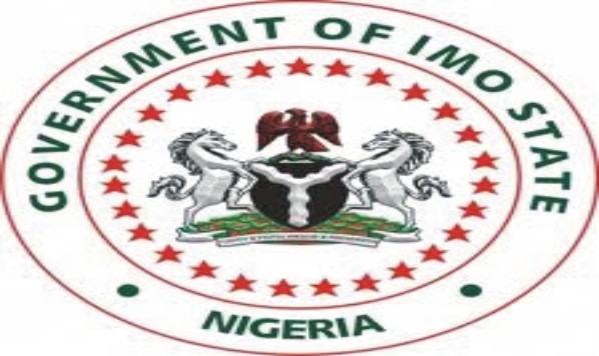•As House Of Assembly Passes CCTV Law
•Awaits Governor’s Assent For Full Implementation
By Onyekachi Eze
For his desirous aim towards ensuring adequate security of lives and property of residents of Imo State, Rt. Hon Uche Francis Agabige has made a legislative step in achieving his vision by presenting a bill for the installation of CCTV in all public places in the State.
The approach, according to him, was in support of the Imo State government’s avowed determination to guarantee the safety of the citizens.
This move was contained in a bill presented by Hon Uche Agabige, a two-term State Lawmaker representing Orsu Constituency at the law making chambers of the Imo State House of Assembly.
The House of Assembly Bill number 18 has its long title, “A bill for a law to make the installation and maintenance of Close Circuit Television, CCTV in all public places mandatory in Imo State and for other related matters. It was passed into law in Imo State Parliament in October 29, 2024.
Recall that after its second reading in September 18, 2024 plenary session, the Speaker, Rt Hon Chike Olemgbe referred the CCTV bill to House Committee on Transport for further legislative actions.
The Committee headed by Hon Sam Osuji and Hon Gilbert Nwosu as Vice Chairman, with Mrs. Obi C.N as committee clerk, scrutinized the bill clause by clause, suggested for amendments and thereafter recommended that it is passed into law.
In view of the above, at the Committee of the Whole House, the CCTV bill was considered necessary for the provision of safety for all residents with the aim of installing it in critical public locations.
Earlier during the second reading, the Chief sponsor, Agabige stated that the bill was solely targetted to providing more security consciousness in the State.
He disclosed that security of lives and property as part of a primary responsibility of the government needed to be supported with such appliances.
It is to be installed in Public and private Places including but not limited to Streets, Worship Centers, Markets, Shopping Malls, Petrol and Gas Stations, Private and Public Motor Parks, Event Centers, Hotels, Eateries or Restaurants, Cinemas, Amusement Parks, Public and Private Offices, Hospitals, Airport, Educational Institutions, Banks, private subdivisions, condominiums and other residential areas,
Government offices and instrumentalities, parks, streets and highways including public markets, public transport terminals,
Private Establishments, Government Buildings and Facilities, and other locations deemed public place by Law.
For the operating guidelines, Agabige read that in the law, the CCTV shall be operated with respect to people’s privacy and their right to conduct or engage in lawful activities.
Also, the owner/operator of the CCTV shall be publicly known to ensure appropriate accountability and shall be appropriately registered with a Security Agency; signage informing the public of the existence of CCTV cameras shall be erected, visible, distinctive and located in areas with good lighting; security Agencies shall develop a system to receive and investigate complaints about alleged violations of privacy; a recorded material shall not be released to the media except only to acquire relevant information on the identity and whereabouts of an individual wanted for a criminal offense, and provide the general public information of critical concern in the community. In such cases, the recognizable characteristics of other
people in the footage shall be obscured; and tapes or still photographs shall be disposed of in a manner which does not allow the reproduction of any of the recorded material.
This newspaper further learnt that only authorised persons have the right to install CCTV system at any public place.
Other parts of the law reads, “Law Enforcement Agencies shall not be allowed to release images or recordings from the CCTV to the media, except only when the circumstances warrant to help identify the perpetrator of a crime or locate his whereabouts, or as a matter of public information;
“The use, copying or disclosure of images and recordings shall be authorized by Security Agencies within twenty-four (24) hours after submission of the request;
“Unless otherwise reserved for a specific purpose to review the events of a crime or that the information needs to be studied further for any number of reasons, data of recordings shall not be kept for more than ninety (90) days and should be automatically overwritten or deleted beyond said period”.
Hon Uche Agabige further reads that the prohibitions provided in the Law are measures to guide against abuse of individuals or groups or establishments.
Prohibition of unauthorised access to CCTV footage according to the new law states as follows;
“It shall be unlawful for any person or establishment to perform the following acts:-
(a) install or use the CCTV on someone else’s property;
(b) install or use the CCTV cameras in any restroom, toilet, bathroom, changing room and other similar areas utilized for private activities;
(c) use CCTV with a device to overhear events, conversations or sounds without the permission of the people involved shall not be allowed;
(d) install CCTVs in public places without the display of due notice on the walls or at the entrance of the establishment;
(e) install a CCTV in the external part of one’s residential or private property that encroaches on the private property of another or of a neighbor;
(f) install CCTV to monitor the conduct or performance in a workplace without due notice to all employees;
(g) install and use CCTV inside a residence to manage one’s family without notice given to the staff and members of the household;
(h) to sell or publish any recorded material or still photographs for commercial purposes; and
(i) to upload any image, recording or stills from the CCTV on the Internet for entertainment purposes. Unauthorized access, use or dissemination of CCTV footage is prohibited”.
The law is said to empower the office of the Attorney General of the State to appoint law officers for the prosecution of the offenders, while any offence under the CCTV Law shall be tried summarily by a Magistrate Court with jurisdiction where the offence was committed.
The governor is also empowered by the Law to make approval and appointment through the Commissioner for Science, Technology and Innovation and Engineering Services for a supervisory body to ensure compliance of the Law once assented by the governor.
However, Agabige thanked the Speaker, and his Colleagues for their rapt attention and support to the success of the Bill so passed into Law.
He was hopeful that given the concerted effort of governor Hope Uzodimma in leaving a lasting legacy for Imo people, he would assent the bill in no distant time for its full implementation, just as it is already in practice in other States like Delta, Lagos and others.
The ranking Lawmaker therefore enjoined Imo State residents to appreciate Uzodimma’s proactive leadership and his quest to giving them the best governance.
In the same vein, he described the 10th House as a proactive House only concerned with the making of people oriented laws and motions, adding that the recently passed CCTV Law is one of which.











